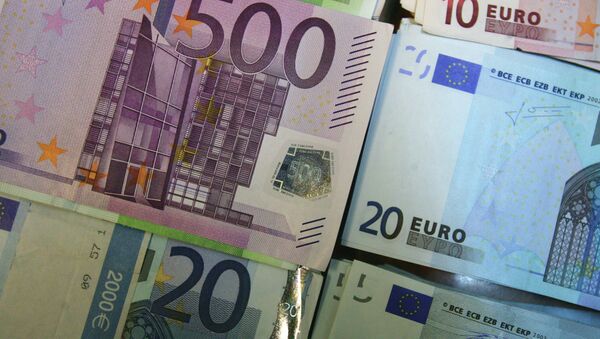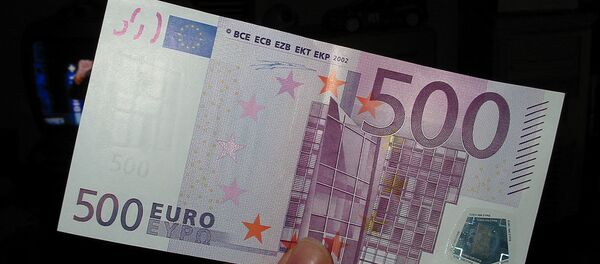"The threat of international terrorism, especially in the form of the Islamic State (Daesh), is behind the move, but restrictions on cash have been discussed for some time for other reasons," FAZ reported.
A source in the German Federal Ministry of Finance said that the use of pre-paid cards and large amounts of cash by the terrorists who carried out the November 13 terror attacks in Paris is one of the reasons for the proposal.
"The world after the Paris terror attacks is no longer the same as before," the ministry source told FAZ, and likened the move to the banning of liquids on airplanes following the 9/11 terrorist attacks in 2001.
Plan der Bundesregierung über Limit von 5.000 EUR/Barzahlungen führt zur Kontrolle der Sparer & Weg zu Negativzinsen https://t.co/E8LdUglUA7
— Stark-Watzinger (@starkwatzinger) 3 февраля 2016
'Federal government's plan: cash payments in future only up to 5,000 euros,' FAZ reported.
Germany's Social Democratic Party (SDP), which forms Germany's ruling coalition with Angela Merkel's CDU party and the Bavarian CSU party, has already called for the imposition of a 5,000 euro limit on cash transactions in the belief that it would better prevent money laundering and tax evasion.
"In our opinion there is no plausible or legal reason to conduct a cash transaction above this limit," the SDP stated in a parliamentary paper last month. In addition, the party wants to ban the 500 euro banknote to stop it being used by organized crime.
"In the federal republic alone almost 60 billion euros ($66 billion) are laundered every year."
Germany is one of a minority of EU member states that currently do not have a limit on cash transactions.
The strictest caps are in Italy, where cash payments over 1,000 euros were banned in 2011 to fight tax evasion, and in France, which in 2015 limited fiscal residents to spending 1,000 euros and non-residents to 10,000 euros in cash.




